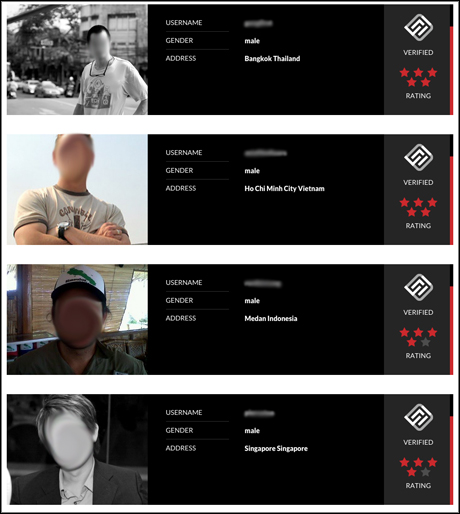
A good fixer in a foreign country can make or break a story and a bit of local knowledge and guidance can keep a journalist out of trouble.
That might mean taking a quicker route or paying a fairer price. It might mean staying out of prison. It might mean staying alive.
"My crew and I might well be in jail were it not for our fixer, who fended off police with great dexterity," Channel 4's foreign affairs correspondent Jonathan Miller said of a recent trip to the Middle East. "Nothing like a confident, experienced fixer for getting rid of unwanted law enforcement officers."
In an interview at WorldFixer, a new community for journalists, producers, broadcasters and fixers from around the world, Miller details some of his more colourful experiences – all bullets and jungles, "shark bait" and secrecy.
But the trust and friendship he built with local individuals on the more intrepid projects is at the core of what made them successful.
"The only way this really works is that people have to want to be in this community," WorldFixer founder Mike Garrod told Journalism.co.uk, "and recommend the people that they think are good."
With 15 years experience in broadcasting as a producer and director, Garrod launched the site in February. It now has over 1,300 members in the database, with everyone from experienced producers and cameramen to local academics or government workers.Working with fixers in different countries is essentially a people business and you can't automate thatMike Garrod, WorldFixer
Fixers can sign up to list the countries they work in, areas of expertise and languages – all searchable criteria in the database – and list their previous work and any references.
Garrod and his team vet new sign-ups thoroughly by speaking to supplied references and contacts, giving each a star rating based on how many times their information has been corroborated.
Too many times had Garrod found himself working on projects or in locations where "the people that were found... I would say were inexperienced".
"I found myself in one country, in Indonesia, and the person didn't speak the right language and he didn't know his way around," he said of one occasion. "If I'd been in that situation [and had WorldFixer] I would have instantly known I could go online, I could see who else is there and I could find an alternative."

Screenshot from WorldFixer.com showing the top four fixers for Indonesia. Blurring added by Journalism.co.uk
Employers should still do their own due diligence though.
"Especially if you're going to an area which is sensitive," he stressed. "It doesn't necessarily have to be a hostile environment but there's obviously a demand for stories in these unsafe areas and you absolutely have to do your own due diligence."
"We're not likely to have people, through the search function, in Syria or Ukraine or some of these places where, despite being in the site, they are jeopardising their own safety and that of the journalist."
Searching, browsing and contacting individuals through the site is free but WorldFixer will take a "scalable" percentage from the employer should they require a more "tailored approach". In those areas where security is paramount, for example, employers can speak to the WorldFixer team directly.
"We've found that a lot of people are more than happy to let us take an agency fee for us to find people, vet them, give alternatives and present that as a package.
"And there's also a lot of people going to do a specific thing. They might say 'ok, I want someone in Jordan with government connections' and you won't know that from a social media profile.Good journalism, good TV, is about content and context and a fixer’s role is to provide both of thoseJonathan Miller, Channel 4 News
"It's my job to know the fixers that we've got and I can try to find the best solution. If we don't have anyone we go through our network to find the right person."
Many of the 740 registered employers browse relevant criteria and contact fixers through other means, but for big projects – especially in TV – Garrod has found his network and knowledge can fill the gap that the database cannot.
"Working with fixers in different countries is essentially a people business and you can't automate that."
The need to strike a balance between broad and noisy social networks, industry-specific needs and human discretion is a growing sector in the 'people business' that is journalism.
Sites like PayDesk and journohub launched explicitly to better connect freelancers and editors, while hostwriter is closer to WorldFixer in helping journalists collaborate on projects in different countries.
But, as Miller says at the end of his interview, although some of the technology and peripheral skills may change, the fundamentals remain the same.
"Ultimately, good journalism, good TV, is about content and context and a fixer’s role is to provide both of those," he said. "So that will probably never change."
Update: This article has been updated to clarify that WorldFixer only charges a fee when working directly with employers to their specific needs. Sign up, search and contact through WorldFixer is free.
Free daily newsletter
If you like our news and feature articles, you can sign up to receive our free daily (Mon-Fri) email newsletter (mobile friendly).
Related articles
- New European journalism database facilitates cross-border collaboration
- Robin Kwong, new formats editor of The Wall Street Journal, on evolving bridge roles
- What journalists need to know about product thinking in 2022
- How journalists and academics can tackle misinformation together
- Improving communication in a virtual newsroom - Newsrewired special









